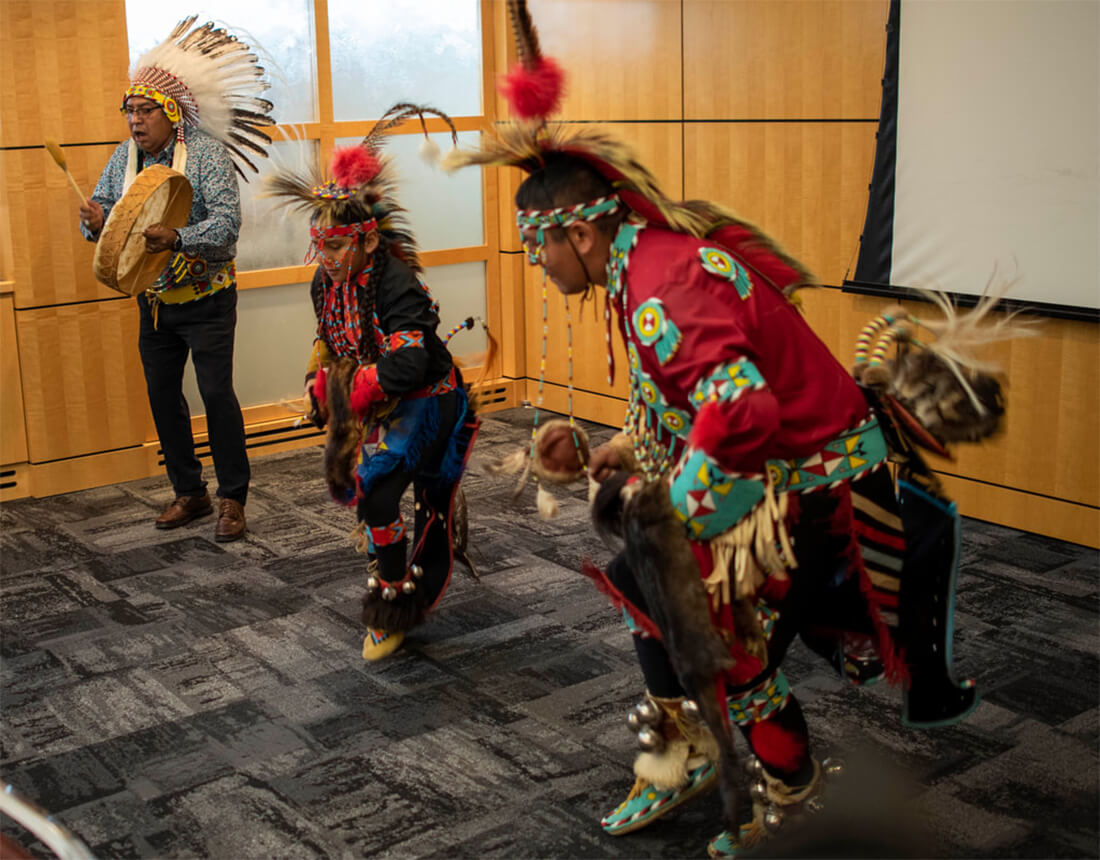Reaching Across the Generational Divide

"My hope is to educate our young people," explains Elder Susan Quinney, speaking to a panel of her peers. "To show them how sacred our tobacco is. How we use it in so many different ceremonies, how we put tobacco down whatever we do, whatever we're picking."
"I put tobacco in water because water is life for us, too," she continues. "We live through water. That's how we live to survive."
Canada may have closed the last residential school in 1996, but that did not mark an end to its cultural genocide. Countless youth have been thrown to the mercy of the foster system, forced to grow up without the traditions that were their birthright. Many who avoided that fate have not fared better, struggling through generational trauma with little guidance or direction.
It needs to change — and that change starts with reaching across the generational divide. For that, we need to listen. Because if our youth don't feel heard, then why should they listen to us?
"We have to understand our youth and where they're coming from," Elder Joe Quinney explains. "As parents, we don't just tell them what to do. We have to listen to them too, see what problems they're having — maybe they want to tell us something."
"They're our kids," he continues. "And if we listen and don't get mad or push them away, maybe they'll ask us why we're doing what we're doing."
Passing on Knowledge
One of the most important lessons to impart is not to be ashamed of what one knows. To willingly embrace both language and tradition, and show others through example. This, explains Elder Doris Coutorielle, is what she and her husband have done with their granddaughter.
"We've raised her since she was fifteen months old, and now she is eleven years old and she knows and recognizes a lot of the traditional medicines we harvest — she helps clean them and put them away, and with the tobacco, she does the offerings," says Elder Coutorielle. "One of her teachers was addressing the Elders a week ago, and she told them what a knowledge teacher is."
"She said Anabelle is a knowledge teacher and she's eleven years old," she adds. "Recognizing those things in a child will give them a lot of self-esteem in the future."
The Keep Tobacco Sacred Collaboration represents a step in that direction. By explaining the incredibly important role tobacco plays in many of our cultures, our hope is that we'll ignite in our children a spark — the desire to learn their language, their traditions, and their histories. The desire to reclaim what they lost.
In that regard, it's not just youths we seek to help. Many of the people driving the initiative are re-learning things, as well.
"Some of this stuff is new to me too," says Elder Calvin Badger. "When you're five years old and in residential school…I never knew nothing. So now that I'm in my senior years, and the things I've been picking up the last 25 years about my culture — Cree Culture — where I come from, and who I am; I'm trying to instill that into my grandkids and granddaughter."
"I want to know more," adds Elder Doreen Moosepayo. "Every day, we're learning. To learn from each other and to work together, that's so important. One can't do it alone."
Breaking Down Commercialization
The widespread commercialization of tobacco is a massive health risk for both children and adults. That much is clear. But it's unlikely we'll reach anyone by hammering down on how unhealthy cigarettes are.
Everyone's already heard that over and over, been told not to smoke by someone who proceeds to chain their way through multiple packs.
Ultimately, we must — as Elder Raymond Bigstone puts it — face the facts of what's actually taking place with young people nowadays. We have to start by being there for them. And hopefully, in doing that, we can work out a solution and find out the ingredients we need to help them surpass their problems.
It will not happen overnight, though. For many youths, quitting smoking will be an uphill battle. The most important thing is to understand that — and to support them in their efforts.
"You're not gonna immediately quit cold turkey," explains Trenton Sunshine-Berry. "You've gotta pace yourself and all that. And I'm still struggling with it, but the first thing is that like…if you have kids and all that, do not buy them tobacco products at all, it has serious consequences on someone's brain, having a little dopamine spike and just nothing after that."
Help Us Keep Tobacco Sacred
There are many things we can teach our kids — many things the Elders involved have taught their kids. But we feel that tobacco is the right place to begin. As for how that will look?
Maybe it will take the form of community greenhouses. Or coaching on ceremonies. Or how and why one should put down tobacco when picking.
But whatever the case, we truly hope that this grows into something more.